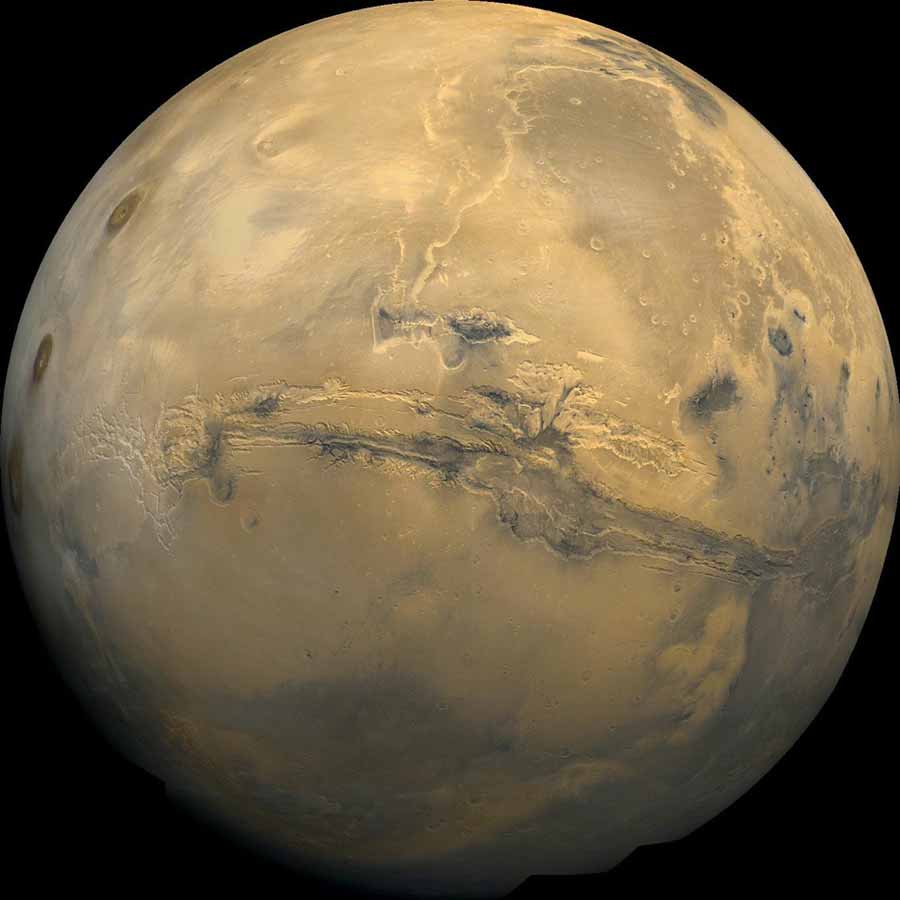University of California, San Diego | 2014 Dec 22
A new analysis of a Martian rock that meteorite hunters plucked from an Antarctic ice field 30 years ago this month reveals a record of the planet’s climate billions of years ago, back when water likely washed across its surface and any life that ever formed there might have emerged.
- [i]The surface of Mars was once wet, but no water flows there now. UC San Diego chemists and others took a close look at meteorite that may have been blasted from this huge rift across the planet’s surface. The image is a composite of hundreds of photos taken by NASA’s Viking missions in the 1970s. [b]Credit: USGS, NASA[/b][/i]
Scientists from the University of California, San Diego, NASA and the Smithsonian Institution report detailed measurements of minerals within the meteorite in the early online edition of the Proceedings of the National Academy of Sciences this week. ...
The unlovely stone, which fell to Earth 13 thousand years ago, looked a lot like a potato and has quite a history. Designated ALH84001, it is the oldest meteorite we have from Mars, a chunk of solidified magma from a volcano that erupted four billion years ago. Since then something liquid, probably water, seeped through pores in the rock and deposited globules of carbonates and other minerals.
The carbonates vary subtly depending on the sources of their carbon and oxygen atoms. Both carbon and oxygen occur in heavier and lighter versions, or isotopes. The relative abundances of isotopes forms a chemical signature that careful analysis and sensitive measurements can uncover. ...
The degree of isotopic weirdness in the carbonates reflects how much water and ozone was present when they formed. It’s a record of climate 3.9 billion years ago, locked in a stable mineral. The more water, the smaller the weird ozone signal.
This team measured a pronounced ozone signal in the carbonates within the meteorite, suggesting that although Mars had water back then, vast oceans were unlikely. Instead, the early Martian landscape probably held smaller seas. ...
Carbonate formation events in ALH 84001 trace the evolution of the Martian atmosphere - Robina Shaheen et al
- Proceedings of the NAS (online 22 Dec 2014) DOI: 10.1073/pnas.1315615112
